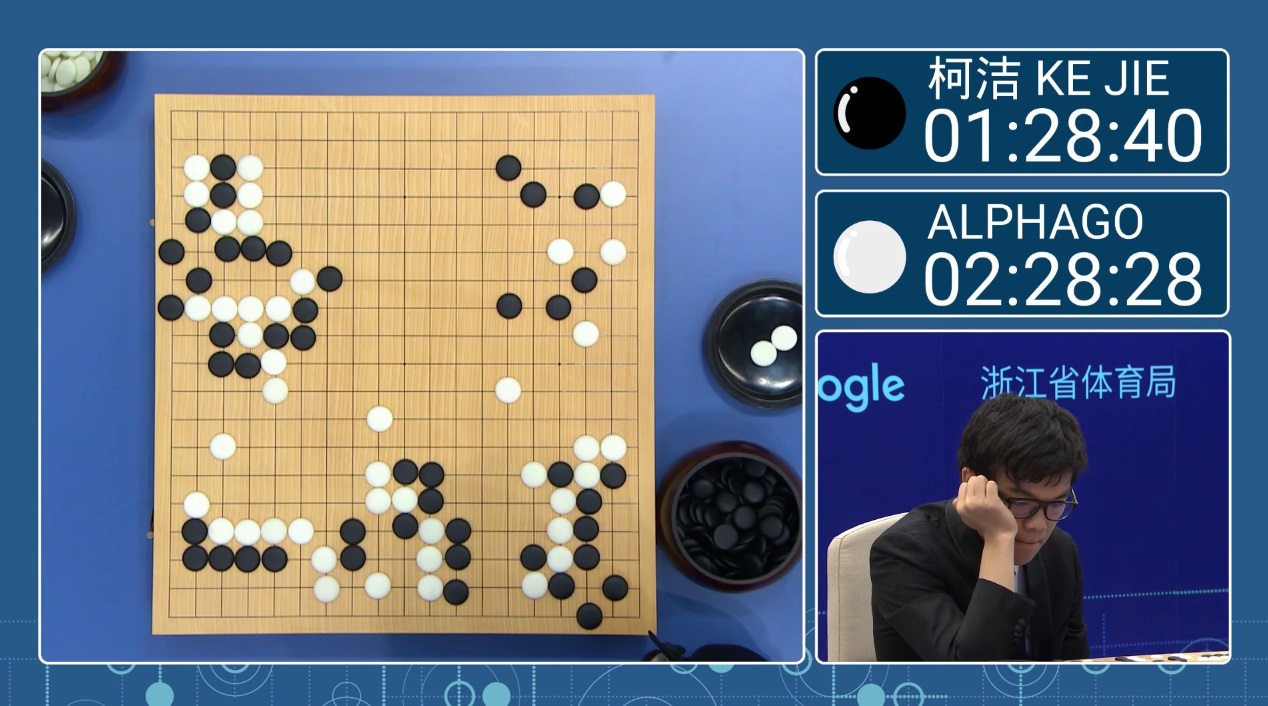 EMERGING TECH
EMERGING TECH
 EMERGING TECH
EMERGING TECH
 EMERGING TECH
EMERGING TECH
Google Inc. may soon be able to claim that AlphaGo is unbeatable, as the Go-playing artificial intelligence has won yet another landmark game.
On Monday, AlphaGo managed to narrowly win its first of three matches against Ke Jie, a 19-year-old Go prodigy from China who is currently ranked as the top player in the world.
Ke Jie opened the game by using unconventional moves that had actually been pioneered by AlphaGo itself in previous matches, and while the AI managed to maintain a significant lead for most of the game, the match concluded with the AI winning by only a half-point.
Despite his loss, Ke Jie said that he enjoyed playing against AlphaGo, saying that the AI is “really a very wonderful Go player. I really respect its skill in Go.” Ke Jie added that AlphaGo’s unconventional play style has helped the game of Go evolve, and he believes that players of all skill levels should analyze the moves made by the AI. In all of the games AlphaGo has played so far, Ke Jie said, “a weakness [in AlphaGo] has not been revealed yet.”
Go is one of the oldest and most complex games in the world, and while many human players can spend decades mastering the game, AlphaGo seems to have done it in just a few short years. Developed by the Alphabet-owned DeepMind Technologies Inc., AlphaGo first made headlines in January 2016, when the DeepMind team published a paper showing that its AI had defeated a professional Go player, an accomplishment many AI researchers believed to be years away.
At the time, DeepMind Chief Executive Demis Hassabis explained that Go presented an “irresistible challenge” to AI researchers because of its complexity. He noted that the number of possible board states in Go is “more than the number of atoms in the universe.”
Through deep learning, AlphaGo has continued to improve since its first victories, both in skill and efficiency. The instance of AlphaGo that defeated Ke Jie yesterday uses ten times less compute power than the version that played against Lee Sedol last year, and the new instance runs on a single Google cloud machine.
Hassabis said during yesterday’s post-match press conference that the DeepMind team was excited to see some of choices Ke Jie made during the game, as they were interested in seeing how AlphaGo would react to playing against its own strategies.
Hassabis also announced that DeepMind will once again publish an academic paper detailing the methodology behind AlphaGo, which will reveal how the AI has been enhanced since its last public competition.
Support our mission to keep content open and free by engaging with theCUBE community. Join theCUBE’s Alumni Trust Network, where technology leaders connect, share intelligence and create opportunities.
Founded by tech visionaries John Furrier and Dave Vellante, SiliconANGLE Media has built a dynamic ecosystem of industry-leading digital media brands that reach 15+ million elite tech professionals. Our new proprietary theCUBE AI Video Cloud is breaking ground in audience interaction, leveraging theCUBEai.com neural network to help technology companies make data-driven decisions and stay at the forefront of industry conversations.